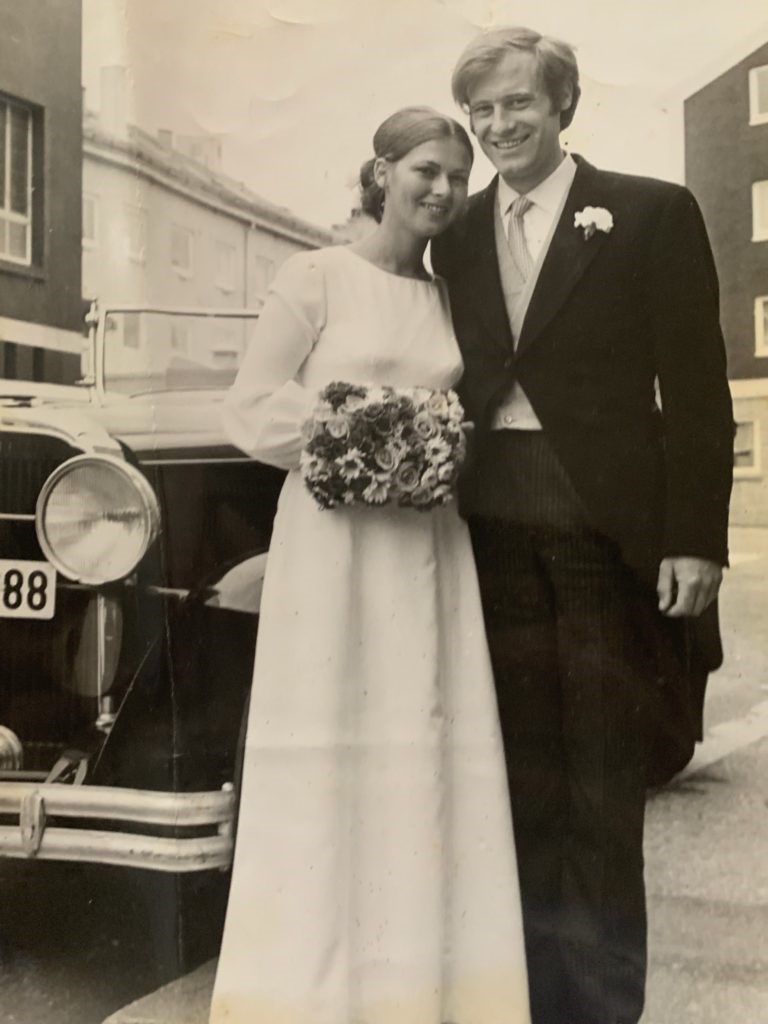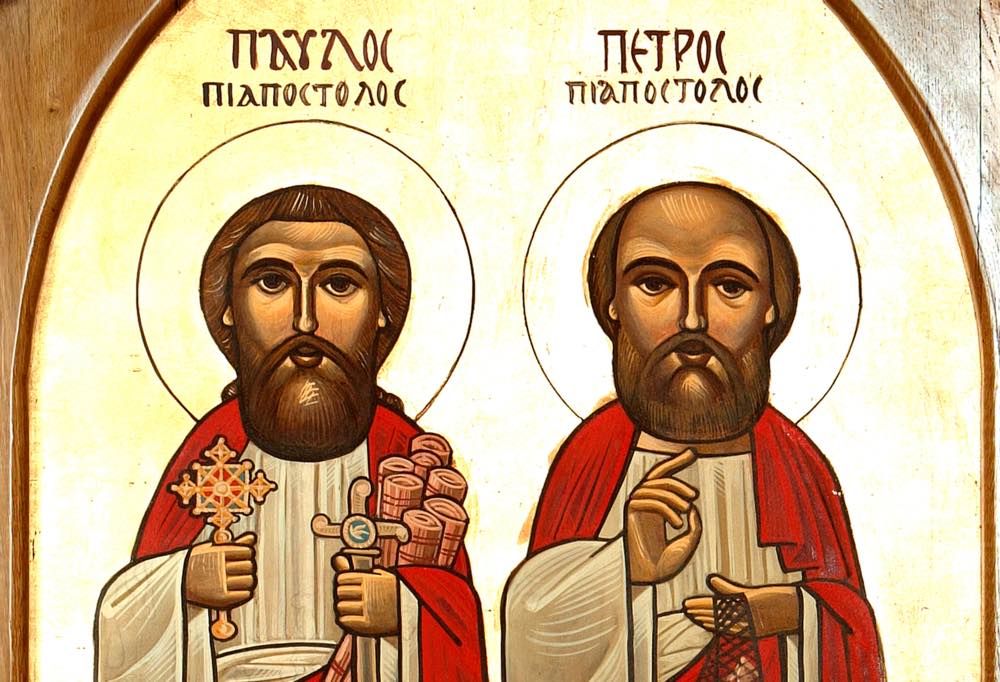– ROBAIRD O’CEARBHAILL
Hong Kong Correspondent
Jonathan Coleman, after professional and business success, knowing and appreciating much of the world – including Macau – has never been seduced by glamor. He’s always stayed Catholic to the core and glad to be so. An inspiring man with positivity, willingness to forgive, not dwelling on upsets, nor conceit – he’s humble. And his highest principles, are what Jesus taught as supreme: God above all and love your neighbour as yourself. Coleman revealed to O Clarim that his character and philosophy came from a thorough Catholic education including love of his devoted parents.
Although very busy, he was eagerly able to take up his valuable time through two interviews at his comfortable, well decorated with oil paintings, flat. Overlooking picturesque Aberdeen harbour with no noise it’s a calm refuge from busy Aberdeen. He did not just to open up about the Church and parenting but some of his happy expatriate work experience, although modestly as ever he downplayed the high status of his positions in Libya and Pakistan and was clear about why he stopped working in Saudi Arabia. Coleman also talked about the illogical aspects of national identity, being a world citizen, sportsman with various hobbies and schooled with the Jesuits. He also spoke enthusiastically about what Hong Kong offered as so special. Likewise his love of Macau coming from many trips; it’s pleasures and treasures and no difficulty to find Mass in “wonderful” churches, “a Catholic island with a very rich cultural heritage.”
Digging up happy nostalgic memories, he said “a great place for a short break and almost worth visiting just for the famous egg tarts,” and the good old days – of the Bela Vista when it was a hotel, and of course more on the territory’s cuisine. “There were many good and cheap restaurants” but eating out in Macau didn’t always go to plan. There was an awkward, but funny moment at the restaurant at the Bela Vista, “a great old-fashioned hotel to stay in. An amusing tale when I was visiting with my sister and having a meal in the hotel restaurant. My sister suddenly cried out: ‘Waiter, waiter there is a rat under our table’ only to have his Fawlty Towers response: ‘What do you expect, this is a restaurant!’ (Fawlty Towers very popular BBC television comedy series, film star John Cleese, the manager talking absurdly, treating people badly.)
Coleman’s love of Macau came also from exploring the territory by car, more accurately, the delightful, tiny, open-sided jeeps. “I could hire a mini-moke and drive to freely all over the islands.” He noted the changes from the 1990s but still describes the city as “wonderful. It is now hugely developed with casinos and all the interesting antique shops leading up to and around the iconic ruins of the church of Saint Paul’s or Mater Dei…. Saint Paul’s, sadly destroyed in 1835, only the fine facade now exists. Macau is still a wonderful place to visit with all its ancient buildings, history and churches.”
Jasmine Coleman’s daughter was baptized in Taipa old village at the Nossa Senhora de Carmo church in 2001. Coleman had his mother flown in from England. We all had a most memorable day.” It was a family at peace and in harmony – qualities he learned from his very caring parents.
Families need love and Christian charity, he said “if you love each other forgive – not dwelling on the past for too much blame.” Praising his mother and father he said: “My parents never blamed us for anything. They forgave us and moved on. They were calm and never shouted.” He is sure healthy parenting taught him young how to forgive easily and never bears grudges against anyone. He believes anger and hate are damaging against those directing these negative emotions at others.
Although Coleman was born in India in the last few years of British rule, nationality-wise his blood and genes come not from India nor from Britain but from Ireland, France, Holland and Scotland. “It’s a huge mixture.” For study Coleman has lived in the UK, in Ireland and France. For work he has been in the UK, Pakistan, Libya, Saudi Arabia and Hong Kong.
He studied first with the Jesuits, boarding for ten years from 1954 to at both prep (lower and senior school) of Beaumont College, England which had the status of being the best Catholic school in the country. Coleman, unlike many other pupils, enjoyed being at the school, with its strong national level strengths in cricket and rowing. The latter became Coleman’s sport leading to a lifelong interest and activity in water sports including water skiing and sailboarding.
After school, Coleman spent in 1962-64 in Paris working and studying French – to fluency. Then at Ireland’s top University, Trinity College, from 1963 -67 he earned a bachelor’s degree in Statistics and Economics. “The Glory Years,” Coleman described them. “We were told by the dean not to let work interfere with your social life. ‘You will need these contacts all of your life.’”
As he made his way into chartered accountancy, four years later he was recruited into a top job in London as Financial and Administration Manager for a large UK and Middle East large trading company, Saigol Brothers. The firm sent him later to rewarding jobs in Pakistan, then Libya. Life in those countries was very pleasant and people were good, he said but is now saddened by the results of the Nato invasion of Libya. From peace and plenty it’s stagnated into conflicting tribal parts, and is now a civil war. His last expat position in the same senior executive role was in Saudi Arabia which he could not abide. “Horrible place. Repression of people for religious reasons. No windows looking out of houses. Gender segregation everywhere.”
In 1987 he moved to Hong Kong to be a partner in Theresa Coleman Fine Arts and The Tibetan Gallery to manage the financial and accountancy and business systems in a thriving international company. He enjoys living in Hong Kong particularly for its views and hiking. “Main hobby is walking up and down new places. In Aberdeen ten minutes, I always walk very fast, to be in the hills completely alone.
Coleman calls himself a world citizen because nationality was “selective (i.e. exclusive not inclusive) in the past and does not lead to all holding hands in total union” as the Catholic Church, the universal Church, is intended to do.
“I am definitely unremarkable and no different to others with my upbringing in a strongly practicing and loving Catholic family and fortunate enough to have been educated by the Jesuits for ten years. I do try to see everyone as God’s creation and know that there is more than one path that leads to him. Love God above all things and your neighbor as yourself however difficult and all will be well.”
“I would be happy if it was thought that I deserved the epitaph ‘Loyalty’ to be written on my gravestone just as it was on my father’s before me,” he concluded.


 Follow
Follow


